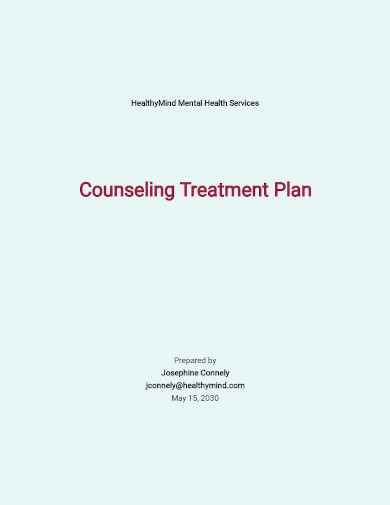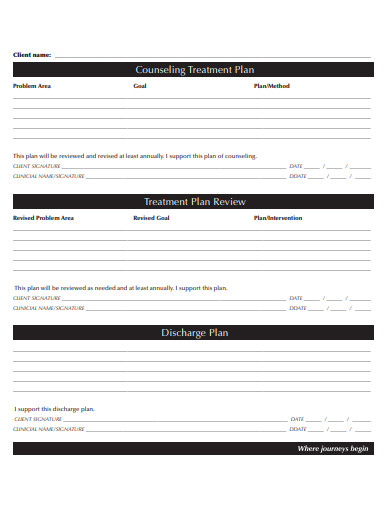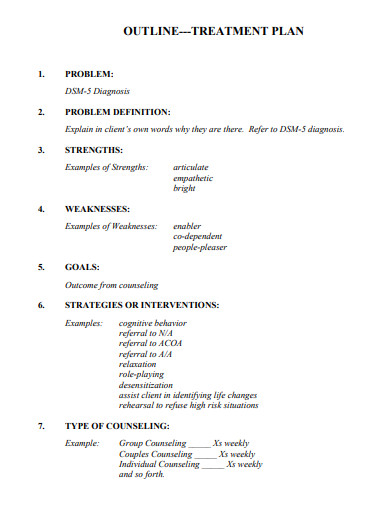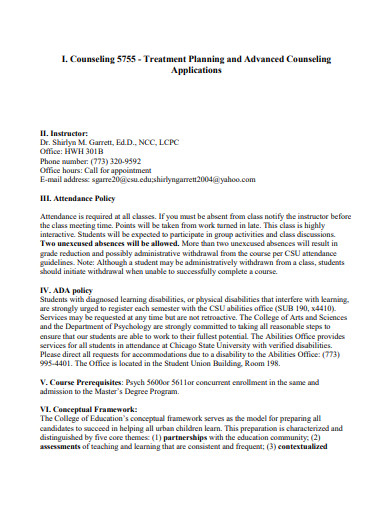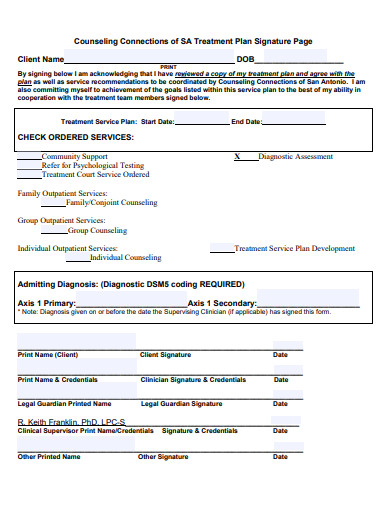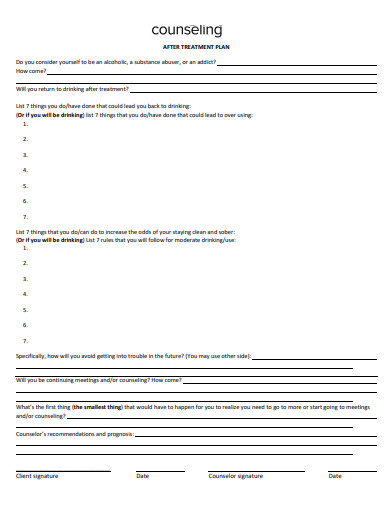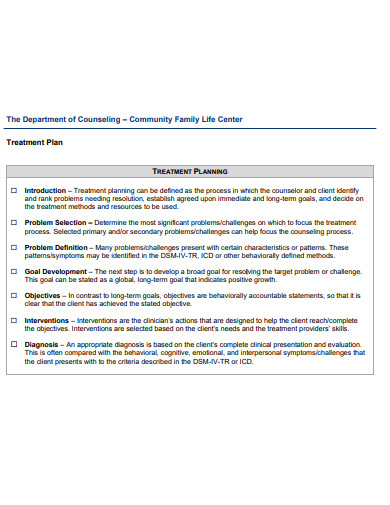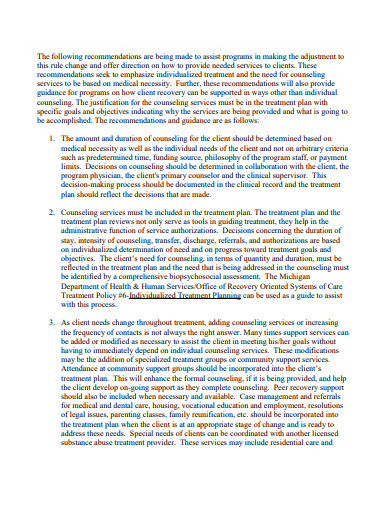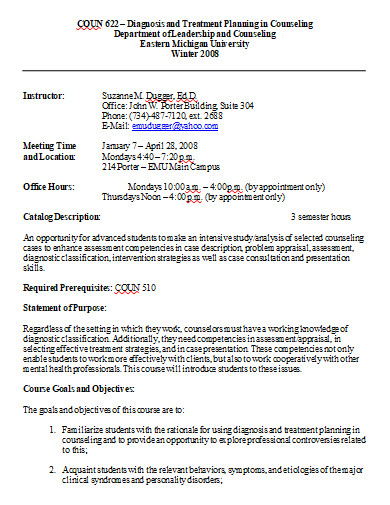8+ Counseling Treatment Plan Examples to Download
Just like how some people suffer from physical illness, some also undergo crisis in their mental health. When individuals experience a lot of pressure and have numerous stressors, it can result in a mental illness. As a professional in this practice, it is your job to offer counseling sessions. Your aim should be to help these people discover ways to respond to their mental health problems. That said, to achieve the goals, the counselor needs to compose an effective counseling treatment plan.
8+ Counseling Treatment Plan Examples
1. Counseling Treatment Plan Template
2. Sample Counseling Treatment Plan
3. Counseling Treatment Plan Outline
4. Advanced Counseling Treatment Planning
5. Counseling Treatment Plan Example
6. Counseling After Treatment Plan
7. Formal Counseling Treatment Plan
8. Printable Counseling Treatment Plan
9. Counseling Treatment Planning in DOC
What Is a Counseling Treatment Plan?
A counseling treatment plan is a document that counselors write to list their recommended methods and activities that will be most effective in the progress of the therapy. Counselors incorporate this treatment plan based on their records. In addition, it will serve as a narrative report of the intervention the counselors plan to implement to ensure the success of the counseling.
How to Devise an Instructive Counseling Treatment Plan
When psychology practitioners begin giving therapy, they set objectives. The counselor base these goals on the data and findings he or she gains on the sessions with the clients. To keep your treatment plan as instructive as possible, you need to pay attention and consider the necessary components of psychotherapy.
1. Refer to Your Therapy Notes
It is a counselor’s responsibility to take down necessary information every session. These data may include an objective and subjective description of the client’s symptoms and behavior. In addition, it also includes assessment and application of clinical reasoning. That said, in the process of writing your treatment plan, you should use your therapy notes as a reference.
2. Analyze Mental Health Problems
People are different from each other. They have experiences and perceptions about things. That said, even when clients end up with a similar diagnosis, they suffer from conditions unique to each other. In dealing with each of them, you need to analyze to pinpoint what they are experiencing. Writing an evaluation summary report may be helpful in this step.
3. Recommend Helpful Methods
Now that you know the particular problem of your patient, the next step is to generate methods that you specifically tailored to their condition. If they are suffering from depression, anxiety, or substance abuse, ensure to adjust your medical action plan to suit the client. In addition, you can recommend recreational activities that would surely help your patient.
4. Include a Timeline for Progress
Considering that you now have an outline for your therapy objectives and a list of your recommendations, you now need to construct a timeline chart that would decide and organize the order of the plan. In your framework, you should also highlight your patient’s goals for the upcoming sessions. This diagram is a necessary tool that would encourage clients to reflect on their progress and also inform them of the various activities they should try on the entirety of their therapy schedule.
FAQs
What are examples of achievable mental health goals?
The first thing to remember in setting your personal goals to improve your mental health is you should not be so hard on yourself. Progress is gradual so ensure to set SMART goals. Examples of these goals include practicing to love yourself and your body and seeking support from the people you trust. In addition, you can also aim to establish boundaries with people and find methods to deal with stress.
What should you expect in your first counseling session?
On your first day of counseling, you don’t just jump right off and start it right away. Your first session is the time for formalities. That said, it is when you should answer and sign several paper works. After doing so, the procedure is to get to know your therapist and talk about the estimated cost of the fees you need to pay in each session.
What are the various types of counseling?
Aside from counseling for mental health problems, there are also other types of counseling services. One example is career counseling. In this type, the counselor will conduct a career assessment to help the client realize the career development plan is most suitable for their condition. Other kinds include marriage counseling, educational counseling, and rehabilitation counseling.
Problems in mental health are one of the obstacles that can hinder the productivity of a person. Although, unlike sickness that people get physically, people aren’t as open-minded in seeking help when they have a mental illness. You can take a step in eliminating that stigma by devising helpful counseling treatment plans. Doing so would motivate your clients to speak up more about their conditions. Also, they might end up recommending you to other people that they know.



